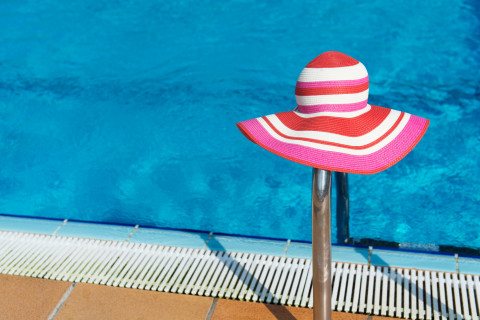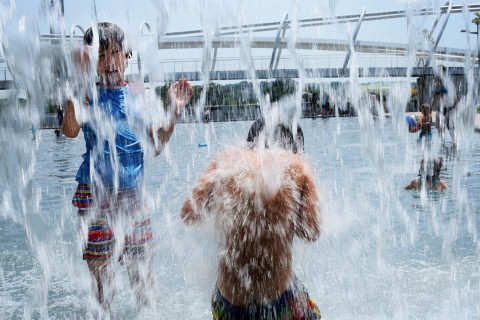WASHINGTON — As the D.C. metro area enters a stretch of hot weather Thursday with no end in sight, a little shade can make a huge difference.
“Getting out of the direct sun can cut about 15 degrees off the skin temperature of a person,” said Paul Stark, vice president of properties and facilities at the YMCA of Metropolitan Washington. “Stay in the shade, play in the shade.”
YMCA has a policy related to heat advisories to help keep children out of potentially dangerous weather:
- Heat index of 100+: Cancel all outside activities for campers and others.
- Heat index of 95-100: Limit outside activities with mandatory 30-minute breaks for rest and water.
“We’re always monitoring the children for fluid intake to make sure everybody’s drinking enough water,” Stark said, adding that’s usually eight to 12 ounces per water break.
“As much as they can take in without, obviously, making them feel sick.”
Stark recommends parents tell children about the steps everyone should take in adverse heat.
- Drink plenty of water;
- Don’t push yourself;
- Take frequent breaks;
- Get medical help if you stop sweating;
- Adults should take corrective action, and children should seek help, if they feel nauseous, their face feels like it’s burning or they have muscle cramps.
The Centers for Disease Control and Prevention has specific recommendations for the symptoms of heat exhaustion and the even-more-serious heat stroke.
Heat exhaustion
- Nausea or vomiting
- Cold, pale, clammy skin
- Heavy sweating
- Fainting
Under those circumstances you should move to a cooler location, loosen your clothes, lie down, apply wet, cool cloth to as much of your body as possible and sip water. If you continue to vomit, seek medical help right away.
Heat stroke
- Body temperature above 103 degrees
- Hot, red, dry or moist skin
- Fast and strong pulse
- Possible unconsciousness
If you suspect heat stroke, call 911. Do not give fluids to someone experiencing heat stroke symptoms. Move them to a cooler location and try to lower their body temperature using cool cloths or a bath.
Muscle cramping might be the first sign of heat-related illness, the CDC advises.







